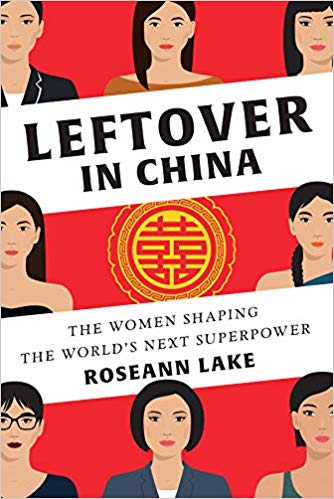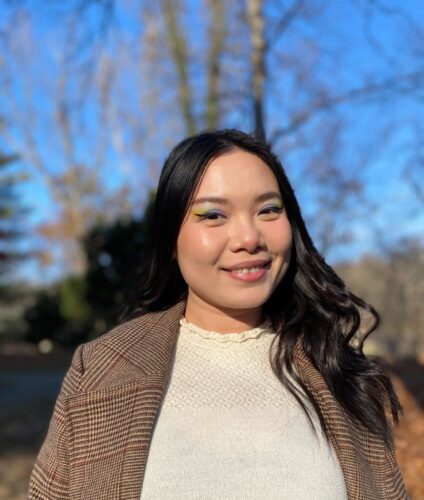Q&A: Roseann Lake on China’s single women shaping the country’s economic future

Roseann Lake covers Cuba for The Economist and was previously based in China as a journalist for five years. During her time in the country, she became fascinated with the lives of the single women around her, whose stories she captured in the book Leftover in China: The Women Shaping the World’s Next Superpower, which was published in China this year with the title Dānshēnshídài 单身时代 (which translates to “the era of singles”).
Lake will moderate the consumer and retail panel at The China Project’s third annual Women’s Conference, which will take place on Monday, May 20, at the Harmonie Club of New York. Ahead of the event, Lake spoke with us about her life as a China correspondent and how Chinese women are becoming an increasingly vital force in the nation’s economy.
The China Project: How did you become a China correspondent?
Lake: That was completely an accident. I wasn’t really a China correspondent at the time. I was only planning to stay in China for three months. I actually still had my job in New York when I moved there. I wanted to learn a bit of Chinese because I thought it would be fun to see if I could get myself a real challenge. And it was after the Beijing Olympics, so I felt it would be cool to go, maybe write some clips, and see if I could do something more interesting than working back in New York. But I ended up buying an electric bike and I had so much fun riding on it in Beijing that I didn’t want to leave. And then I got my first job in a TV station. China ended up being way more fascinating than I thought it could be. For me, obviously three months was not enough to wrap my head around a place. I don’t think three years or maybe even 30 years are enough. That’s how it got started.

The China Project: How did you get into the topic of Chinese women? What motivated you to keep reporting on this subject?
Lake: I was surrounded by them. There were many female colleagues at the TV station where I was first working at. And I saw what they were getting was a pretty unfair deal. They were editors, producers, and the ones making decisions at the network. But at the same time, I found out most of them were unmarried. That didn’t surprise me because I thought it’s perfectly normal to be not married in your early 20s in a big city. But as soon as I found out that they were being called the leftover, I thought that was a very inaccurate representation of what they actually were and what they represented, which was actually great things for China going forward. The fact that China has a growing talent pool of well-educated and ambitious women located in urban areas is actually a good thing for the country. So that was very frustrating to see.
That was very frustrating to see and since I was surrounded by them, I wanted to further understand their situation, but in a way that helps shed a little bit of light on it, not just for me but for more people who weren’t fully aware of why it was so hard for women to date. No one had taken a look at the demographics of where most of the men were located in China. People thought these women were too busy to date. Yeah, that’s part of it. But of course there are a lot of other factors coming into play. So I wanted to portray them as what I saw them, as being heroic, and being a positive thing for China. That’s what kept me interested in their stories and determined to keep writing about them. The stories just kept unfolding. And the questions just kept snowballing. I guess that contributed to my drive to want to stick to reporting on them and ultimately finishing a book.

The China Project: A recent report shows that Chinese women are becoming an increasingly powerful force in homebuying and a remarkable percentage of them are single ladies. What’s your take on this phenomenon? How important are Chinese women in shaping the economic future of the country?
I’m always a firm believer that Chinese women are an economic superpower. Although they are called unpleasant names, they actually hold the keys to a lot of things, namely an important force in the property buying market because they are making money and inheriting money. Another important part of this is that a lot of these women are only-daughters who inherited family businesses and wealth that they probably wouldn’t have gotten if they had brothers. With these assets, they are reintroduced to the economy in different ways. They are also earning good salaries because many of them are ambitious and well-educated.
Meanwhile, from a future perspective, something that’s less easily quantifiable is that they are going to be very valuable as far as demographics is concerned. We all know how badly China wants to increase its population right now. About six month ago, China lifted fines for single women who have children. Ctrip.com is now offering egg-freezing services, which is usually illegal in China. So we are seeing all sorts of interesting [developments] being made for single women, from a fertility perspective. Of course, there are many more that can be made because we are still hearing about things like discrimination in the workplace. But I think these changes are very telling: people are aware that there are women who might not be getting married, but they are a very important part of our economy and population going forward.
The China Project: We know that you are involved in the production of Leftover Monologues, which is a mini play that sheds light on single women in China. How did you come up with the idea? What messages are you trying to convey through the play?
Part of the reason why I was so busy in China last month was because we were doing the play. We did it again. And my book is a bestseller on Dangdang, which is also really exciting for me. This is one of the things I’m most proud of, because how the U.S. audience reacted to the book was of course interesting, but since it’s a book about China and I wrote it for the women that I admired there, seeing Chinese people find it interesting is really exciting to me.

We did the play again because it’s closely related to the book. We first did it in 2014. and by that time, I had already written a full draft of the book. I had this feeling that I knew these women so well and I was really grateful for their stories. I did my best to capture them in written form, but I knew the book would never be as good as hearing a woman tell her story herself. So the Leftover Monologues was born from this idea: I wanted to recreate what I was doing as a journalist, like interviewing these women and hearing their stories. I wanted to recreate it for a wider audience so that they could see, hear, and experience what I was hearing. All those funny, nuanced, and very textured stories.
The women I knew had very creative ways to keep parents at bay, handle the pressure that they were feeling, and tell stories about blind dates and their trips to beauty salons with moms who are never satisfied with their appearance. The play is made of all these mini stories that add to the character of these women. I wanted to let them speak for themselves and let the audience hear what they are like. It’s interesting to see the viewers be taken aback, like, “Wow, wait a minute. They call these women leftover? They are really funny!” They are not waiting in a corner lamenting that no one will marry them. Forget about it. It’s the opposite.

The China Project: Like many other industries, the world of journalism is also rife with sexism and gender-based discrimination. What are some of the particular challenges you ran into as a female journalist? How did you overcome them? Do you have any stories to share with us?
I think in many ways being a female journalist actually works to my advantage. In the field where I’m working in, women would be less willing to share their personal stories with a male journalist in his 40s. Maybe if I were reporting on a war zone, I would have. But my gender definitely worked to my advantage in my reporting. Even in terms of censorship, I didn’t encounter any issue. We did the play all of these times without a hitch. One of the women who’s in it was one of the Feminist Five. Wei Tingting was in our first edition of the play. We were never shut down. China also published my book. As far as the topics I worked on, being female and in the similar age and demographic as my subjects all worked to my advantage.
It’s also about curiosity. One of the things I’ve noticed in the course of my reporting in the past 10 years is that people talk about it now. In 2009, my colleagues came back from their Spring Festival holiday and were quiet. They internalized the pressure that they were facing. They weren’t talking about it in the office or online. Now, if leftover women are portrayed in a negative way in an advertisement, people will be very angry. But that wasn’t happening in 2009. The environment just didn’t exist. There weren’t women’s groups or chapters. But these support groups are here now, not just for single women but for women’s issues in general. So their voices have gotten a lot stronger than before.





